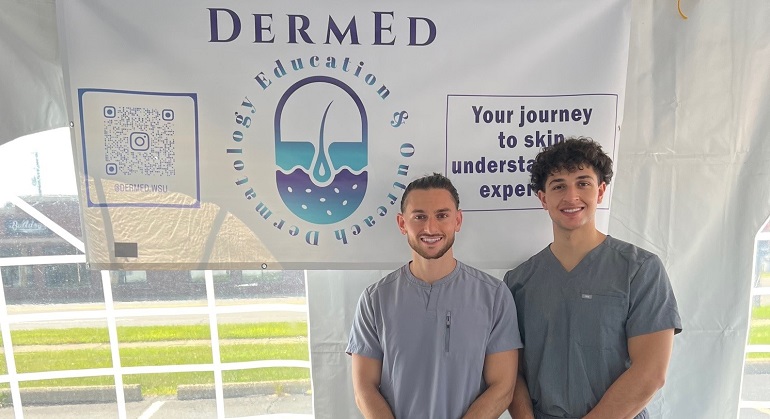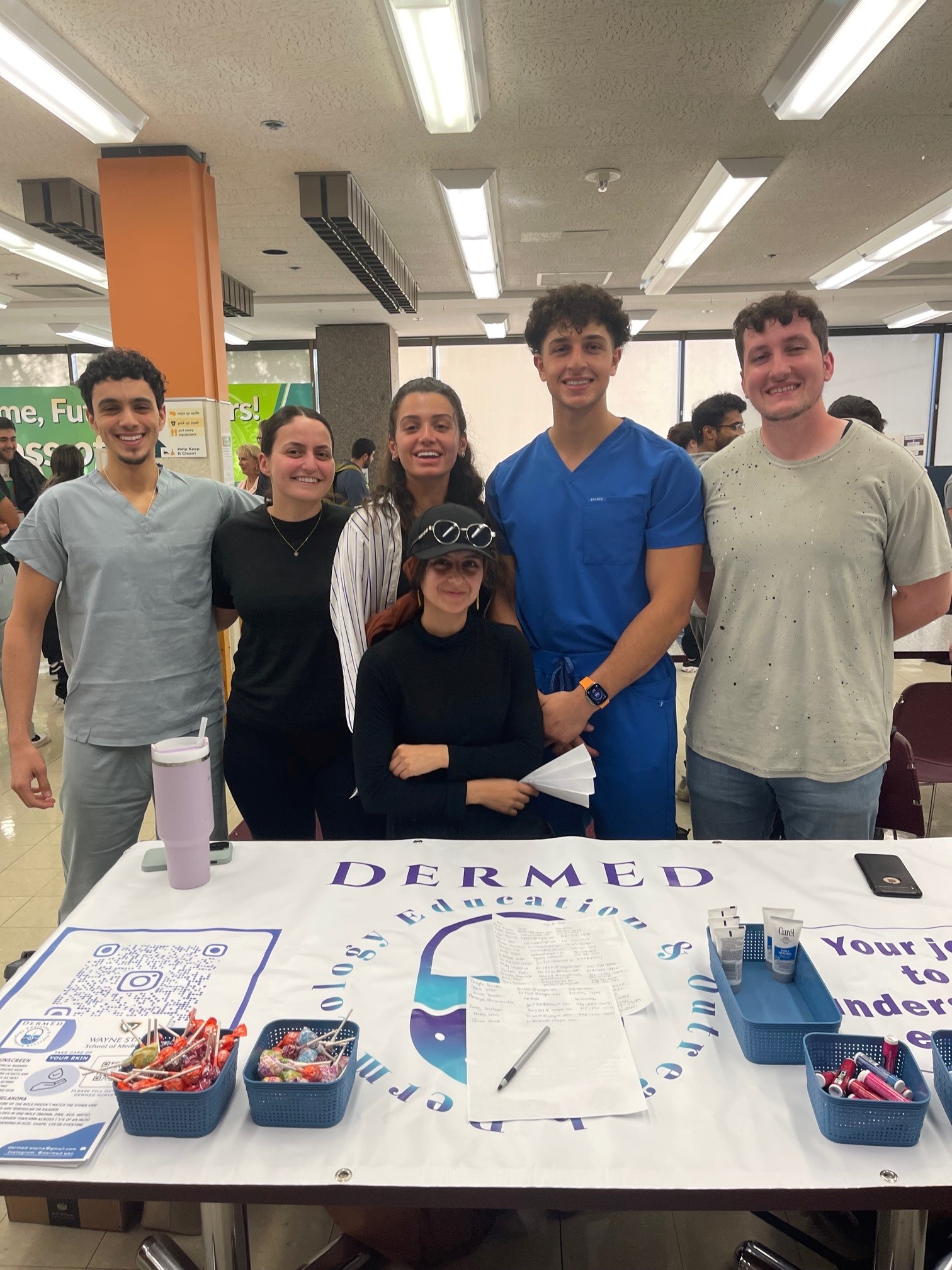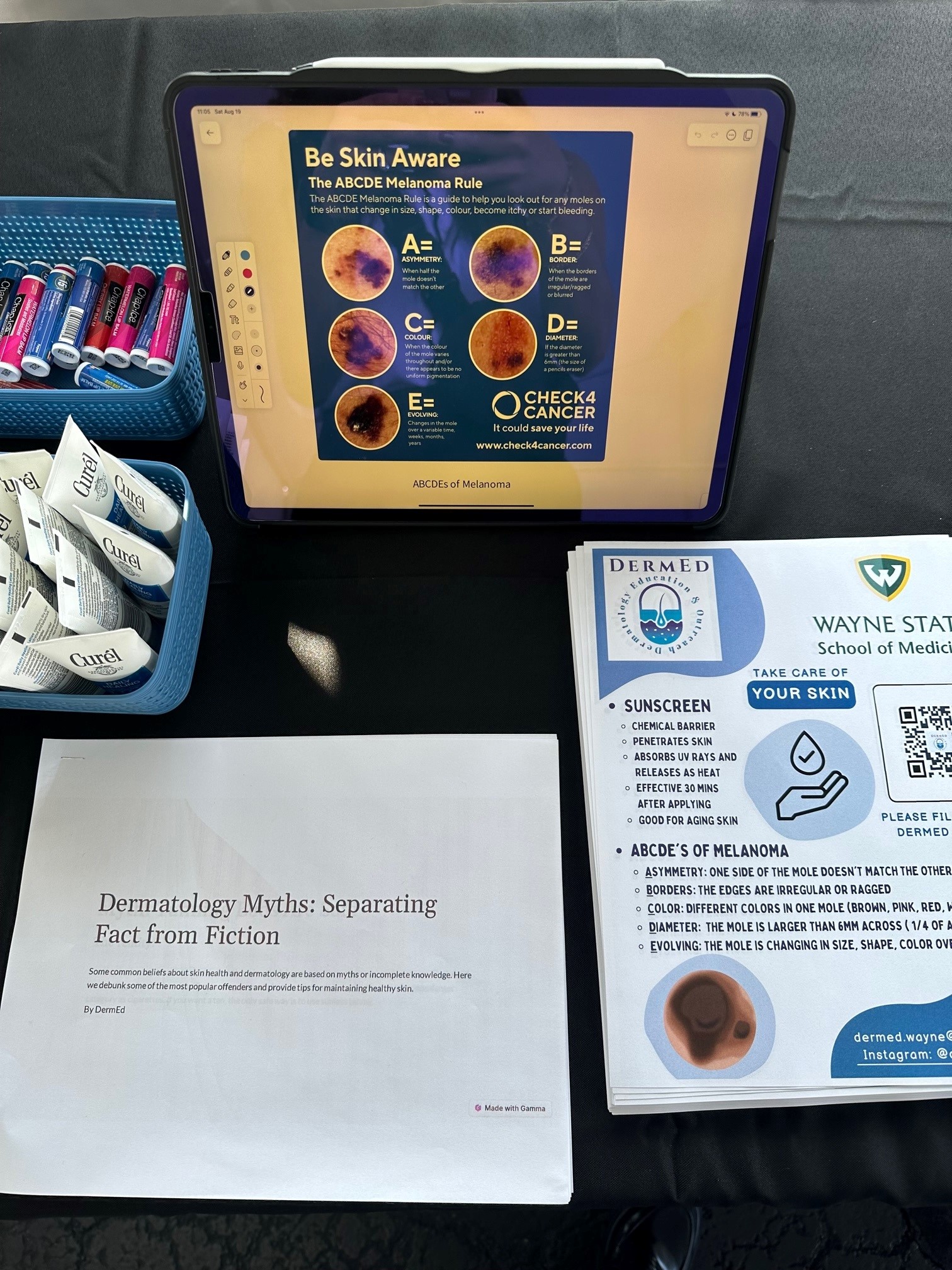
A new student organization and a longtime specialty interest group for medical students at the Wayne State University School of Medicine have banded together to educate the public on the importance of taking care of one’s skin at every stage of life.
DermEd, launched in August, will join the Dermatology Interest Group as their outreach branch. The organization prioritizes dermatological education, outreach and free skin screenings. More information on the organization is available at https://getinvolved.wayne.edu/organization/dermed.
The marriage ensures more opportunities for the community and students by bringing both together and moving toward the same goal, said DermEd founder and President Adam Elder, a third-year medical student at the School of Medicine.
“I wanted to create something that is bigger than myself, something that will stand the test of time here at Wayne State. I hope DermEd will become a staple at the WSU School of Medicine and will be here for years to come,” Elder said. “I want local communities to know that Wayne State has their back, in all aspects of medicine, including dermatology.”
DermEd members will visit local schools, nursing/assisted living facilities, and collaborate with other student-run free clinics to provide free skin checks. Members are also planning a skin fair for next year focused on dermatology.

“The School of Medicine is all about helping the Detroit community,” said Associate Professor of Dermatology Steve Daveluy, M.D. ’08, Res. ’12, the faculty advisor for the Dermatology Interest Group. “Skin care shouldn’t be any exception, so it’s great that we'll have this group to help us spread good skin care education as a service to the Detroit community. It will also provide School of Medicine students another opportunity to give back to the community, while also learning about skin health themselves.”
Dr. Daveluy also directs the Dermatology Residency Program.
“The faculty and residents in the Department of Dermatology are excited to be involved with educational activities for the community,” he added. “We look forward to sharing our knowledge at events, teaching the public and answering questions. I’m excited to see the opportunities to participate at various events, and the department is looking forward to being a part of those activities alongside our students.”
Elder is mentored by Dr. Daveluy. He credits the physician and Class of 2008 School of Medicine alumnus for having a positive impact on his passions within dermatology, specifically his interest in treating Hidradenitis Suppurativa. Also, called acne inversus, Hidradenitis Suppurativa is a chronic inflammatory skin condition with lesions, including deep-seated nodules and abscesses, draining tracts and fibrotic scars.

“Dermatology fascinates me because it combines my passion for science – especially immunology, biochemistry and pathology – and my desire to help others,” Elder said. “The skin is not just an outer layer; it is a reflection of our overall health and well-being. Working in the field of dermatology, I will be reminded of the impact that healthy skin can have on a person’s confidence and self-esteem.
“Our skin is the first thing that people see, and it plays a significant role in how we perceive ourselves and how others perceive us. By understanding the intricacies of dermatology, I can help others feel more confident and comfortable in their own skin,” Elder added. “What I find particularly fascinating about dermatology is its intersection with various medical specialties. The skin can offer important clues about underlying systemic diseases, and by carefully examining the skin, physicians can often uncover early signs of other health conditions. This ability to diagnose and potentially prevent more serious diseases is incredible.”